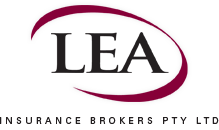
Are You Making These Assumptions About Business Insurance?
As we charge into 2022, it’s time to bust a few myths about insurance cover. Here are five common ones that hopefully won’t surprise you.
Myth 1: Home insurance protects my home-based business
Not necessarily. You should still check your policy for coverage even if clients and visitors don’t come to your home-based business premises. An exclusion may apply when it comes to claiming on your home insurance. Best to be upfront when you start your home-based business and update us so your policy can reflect this.
Your home and contents insurance may not cover your business for various issues. What would give you protection is business-specific cover, including:
- Public, product, or cyber liability issues
- Business interruption
- Accidental injury
- Property damage
- Income protection
- Burglary
- Valuable items and portable equipment you use for work (although some home insurance policies may cover the latter as an extra)
- Machinery breakdown
- Tax audit.
Myth 2: General liability insurance is a one-size-fits-all solution
This cover does protect you from loss, damage or injury to a third party arising from your business operations.
However, you won’t be covered if a customer sues you, such as when there’s a privacy breach from your computer being hacked. Neither is your business protected if an employee is injured at work or they’re wrongly dismissed.
Myth 3: Our subcontractors have their own insurance, so we don’t need it
It’s worthwhile checking your subcontractors have their own public and products liability insurance before they work for you. Make it a condition before they sign on. That will protect them, not you. If they injure themselves at your workplace due to your inadequate workplace safety setup and workflow, they may be able to sue you, resulting in a claim on your public liability insurance.
Such claims involve proportioning liability. For example, your subcontractor may be 55% liable and you 45% liable. That’s why you need your own cover to protect you for your liability.
Myth 4: My personal vehicle insurance will cover my work use
You might expect your personal car insurance policy will cover you for some or all of your business use. But check the insurance policy fine print. Allowing your staff to drive your car or their own for business purposes may leave you and them out of pocket if they need to claim.
Personal car insurance won’t cover vehicles mainly used for business. That’s because business vehicles involve increased risks. For instance, they’re used more often, sometimes in heavier traffic, and on unfamiliar routes. To take out a business vehicle insurance policy, insurers will factor in the following for each driver:
- Kilometres
- Age and driving record of employees
- Geographic location
- Type of vehicle
- Usage
A bonus of commercial vehicle insurance is that you and your business are protected from legal claims arising from accidents while driving, where you or your employee are at fault. You can opt for motor vehicle liability coverage only, or add collision or comprehensive coverage. If you’re regularly driving your personal vehicle for work, other cover options include adding hired or non-owned auto insurance.
We can advise on the extent of your coverage as your car usage changes.
Myth 5: It’s best to undervalue my property/assets because it’s cheaper
It’s initially cheaper to undervalue your property and assets because the premium will be slimmer. But when it comes time to claim, you’ll have to pay the shortfall. So, in the long term, it’s more expensive and riskier. If you must rebuild your home or business premises after a disaster, underinsurance could leave you having to compromise on the size and fit-out unless you have funds to bridge the gap.
For a rough estimate, online calculators can help you estimate the replacement value of your property. You can be more precise, though, by obtaining a valuer’s quote.
This is general advice, and your circumstances or needs are unique. That’s why we encourage you to chat with us about your risks and insurance needs.
